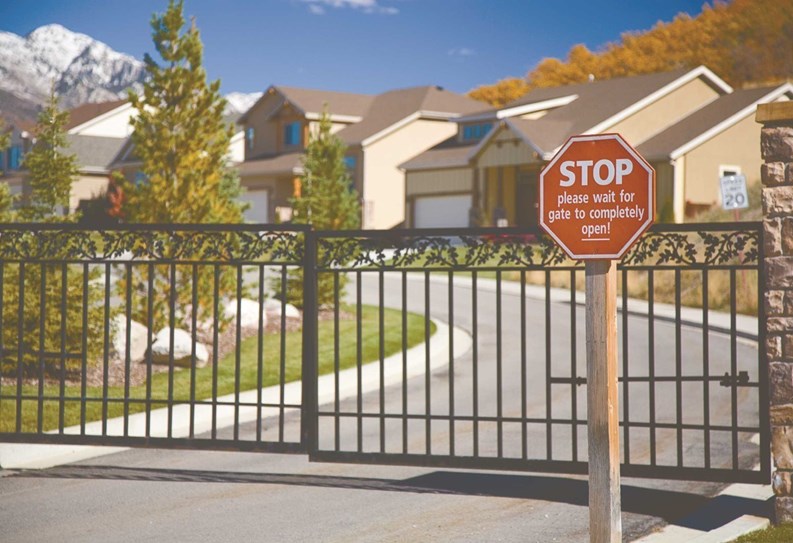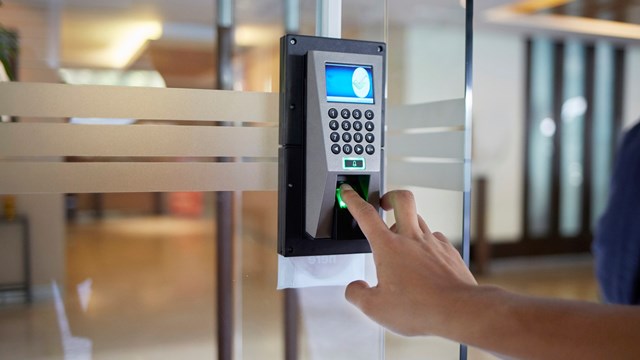In condominium communities, sometimes the most heinous crime a manager can recall is a pair of drunken football fans upending pots of mums and “watering” the foliage. Serious crimes are indeed rare within residential communities but it may have more to do with surrounding neighborhoods—as realtors say, “location, location, location”—than anything else. In addition, rightly or not, community residents may feel shielded from criminal activity by the presence of property management.
Are condo boards or management taking calls these days that should be going to police? Steve Margolis is principal of Margolis Management & Realty in Hamden, Connecticut, a firm that manages 19 properties in a variety of suburban and urban communities that may combine residential and commercial space. He explains that police sometimes get calls from condo residents for what they consider “civil disturbances” and they tell the resident to contact their property manager. This illustrates how complaints must always be assessed—when do nuisance activities become criminal activities and at what point do you call the cops?
He agrees that criminal activities in the majority of condo communities are rare, mainly because, “the properties tend to be well-lit, neighbors are [physically] close to each other, and often are watching out... They are likely to report an unusual presence, since most properties post signs [that warn] private property, no soliciting, no trespassing. If someone comes knocking and they appear fishy, condo residents will call the police.” If it’s a nuisance issue with another resident, however, “People will call management because they want to get something resolved but don’t want to confront a neighbor,” Margolis notes.
When that happens, he points out, “I’m not going to act unless I have a complaint in writing. I might then call [the offender] and explain what the complaint is all about. If, for instance, I get complaints because someone’s having a party, I can cite regulations [in the condo docs] and send a warning to the owner. If it’s a violation, the board of trustees could assign a fine, but the owner is always entitled to a hearing... they have to be properly notified and may bring an attorney.”
Some infractions always seem to evade resolution, Margolis notes. “You have communities where kids ride bikes and skateboards... and on the roadways, no one stops at stop signs...
“I had one resident complain to me that the teenager next door was up in the attic smoking pot. Does she call the police or should I just contact the parents?” Margolis continues. “As a first step, I asked her to put the complaint in writing. As it turned out, she never followed through.” He adds that people will submit a complaint if they are serious about the issue, “However, if it’s a health or safety issue, I won’t wait [for written complaints], I’ll deal with it directly, right away.
“Within every community there are ordinances about disturbing the peace, about pets, parking... “ Margolis states, “but the condo rules can’t really be stricter than those of the municipality. Association boards may think they can curb unwanted behaviors by imposing a tremendous fine but you can’t get away with that if the case goes to court.”
One issue where boards attempt extra restrictions is with smoking. Margolis says, “In certain states, a condo board can restrict smoking in common areas, even outdoors... There have been attempts to bar it in high-rises” where smoke may travel indoors and infiltrate multiple units.
Margolis admits that the most criminal of activities within community settings “is the potential for violence at some association meetings. In this industry’s history, people have been shot, run over with cars...[there’s been] someone threatening a director, or threats between neighbors.”
Avoid Interpersonal Disputes
When a threat is serious enough to be considered a criminal action, police involvement and an arrest may follow. Attorney Richard Brooks, of the law firm Marcus, Errico, Emmer & Brooks in Braintree, Massachusetts, advises, if there’s any doubt, “Tell residents to call the police—not that the board or management shouldn’t be involved, but the police should be called first.
“If it’s just a nuisance issue, perhaps the directors or management can try to deal directly, but just because there is a condo board available doesn’t mean [unit owners] should call them every time. If people are threatened, [and] it becomes criminal... call police right away.” Police must get involved, he says, if there seems to be drug activity or sales—or prostitution. Neighbors usually take note when a unit has a surplus of “visitors” and noise, litter or other problems arise.
For the sake of due diligence, “The board should certainly be made aware of nuisance or criminal activities,” he continues, as well as other unit owners.
Brooks agrees that serious crimes such as attacks or theft are rare in communities because “condos have more lighting, closer spacing and more longevity of owners staying in their units.” Security equipment helps, too. Brooks cites one incident “with a fellow in the common area hallway, taking a pee by the elevator. He was caught on camera and identified. The board then fined the unit owner.” Brooks also describes a crime that started as a simple miscommunication. “We had an association board that ordered a satellite dish to be removed from a common-area wall. The owner called the police to report his satellite dish had been stolen. When the police looked into it and discovered a board member had the dish, they got the two parties to get together and resolve the issue.”
Most typically, Brooks notes, complaints amount to “one owner in dispute with a neighbor. Interpersonal disputes are something that management should not get into. For instance, we try to keep board members away from the issue if it’s ‘normal living’ noise.” He admits, some residents will never be placated, “We had a resident who continuously complained about noise from next door. We discovered that she had also lodged complaints about noise from the previous residents of the same [next door] unit.”
“Our advice to residents,” Brooks adds, “is put you complaint in writing and it will be addressed at the next board meeting [when] directors will then deal with it.”
Available Resources for Practical Solutions
David J. Levy is the principal in Sterling Services in Holliston, Massachusetts, which manages about 25 communities that total over 3,000 units. He relates another instance of miscommunication resulting in crime. A number of years ago, he states, “We had a board president, a former army officer, who told us we had to cut off a padlock to access a storage area that residents used, in the basement of a condo building… there was going to be an inspection for pest control. Afterwards, a unit owner filed charges against the board, claiming that wedding gifts, stored there for many years, had been stolen—supposedly pricey items from Tiffany, that sort of thing, worth thousands of dollars. In court, the judge ruled in her favor, reasoning that management had not given her proper notice.”
He cites an experience in which a local condo association chose to bend the rules to avoid a potential crime. “In this particular community, we had a Level 3 registered pedophile move in… he was renting a unit. As per state law, the police put up fliers, to warn neighbors, all over the common areas and buildings. Management proceeded to put pressure on the unit owner, issuing him a fine for creating a nuisance [with the fliers] in common areas, and the tenant moved out.”
Levy admits that the board acted without much legal standing. Then, in a different case, he reports, “We had a similar tenant move in, and again, warning fliers were distributed. The owner-investor in this situation, however, challenged the board. He insisted that if it went to court, a judge would consider our board and management to be ‘over-reaching,’ … although [the owner] eventually backed off.”
In that case, states Levy, “I’d rather get a judge to say I’ve over-reached than to do nothing for fear of getting sued. We were willing to err [by upholding our action] at the risk of losing in court—but you’ve got to have a board that has guts and is willing to stand up. If someone insists that a Level 3 violator has got to live somewhere, maybe it shouldn’t be in a dense community. Sometimes, you have to decide if being practical is more important than being legally right.”
To streamline solutions to criminal activities—and potential problems--in the properties he manages, Levy has reached out and made connections with local police. As an example, he explains, “We have a housing liaison in the Framingham Police Department and other towns.” This eliminates red tape, speeding up the response and solutions to residents’ reports of illegal or dangerous activities. “If maintenance staff at one of our properties thinks there’s drug dealing [in a unit], we e-mail our liaison” who can address it immediately—the contacts are already in place.
In keeping criminal activities at bay, Levy says, “We tell unit owners to complain to police about all the minor details that contribute to a nuisance. We try to deal with the peripheral problems” and the larger issue may go away. For instance, he continues, “if we suspect a drug dealer in a unit, we can try to scare away the dealer’s customers. It’s as simple as posting security staff in the right place, at critical hours, and just have them hang around. Then maybe the dealer will just move.”
Levy maintains a practical approach. He contends, “You can’t change the world. Our goal is not to stop drug dealing… it’s just to stop them from dealing in your community.”
Marie Auger is a Massachusetts freelance writer and a frequent contributor to New England Condominium.







Leave a Comment